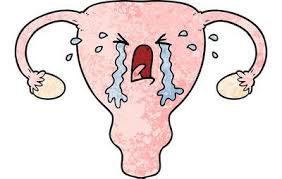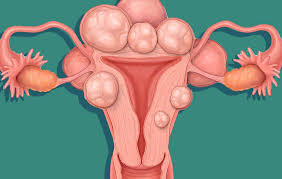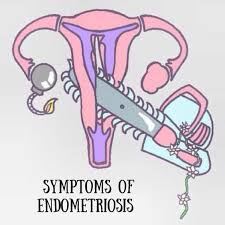Let’s be honest here folks, sometimes sex hurts. As a matter of fact, many women experience pain with sex more often than they do pleasure. Painful sex usually isn’t one of those topics people feel comfortable talking about with friends or even their doctors so many women just suffer in silence. Sex should not be painful and while there are a lot of potential reasons for painful sex, there are also a lot of potential remedies. So lets examine some of the more common reasons for painful sex and what you can do about them.
#1). INFECTIONS:
Why? Infections cause inflammation and inflammation can cause pain.
Where? Infections anywhere in the genitourinary tract can cause painful intercourse. This includes:
- -Bladder infections like UTI’s.
- -Vulvar infections like yeast infections or genital herpes.
- -Vaginal infections like yeast infections, genital herpes or trichomoniasis.
- -Cervical infections like gonorrhea or chlamydia
- -Uterine or fallopian tube infections like PID (Pelvic inflammatory disease).
Other Symptoms?
- -External sores or ulcers.
- -Redness and inflammation.
- -Vaginal discharge usually with an odor
- -Irregular bleeding or spotting
- -Itching or burning.
- -Generalized pelvic pain
- -Fevers or chills.
What to Do? See your doctor or healthcare provider ASAP. All infections can be treated and most can be cured. Be sure to ask your provider if your partner needs to be treated as well.
#2). YOUR UTERUS:
People usually assume that pain with sex comes from the vagina but sometimes the pain is actually caused by the uterus.
Why:
- -Retroverted uterus: If the uterus tilts to the back (about 20% of women) the penis can actually impact it during intercourse causing a deeper pain.
- -Uterine fibroids: These benign tumors enlarge the uterus. This causes pelvic pain and again allows the penis to stimulate the uterus during intercourse.
- -Adenomyosis: Is endometriosis of the uterus, this enlarges the uterus again allowing for penile stimulation and it causes inflammation of the uterus.
Other Symptoms:
- -Generalized pelvic pain.
- -Painful, heavy periods.
- -Bleeding between periods.
- -Painful bowel movements.
What to Do? Make an appointment with your physician or healthcare provider for a thorough examination.
- -If your uterus is retroverted, trying different sexual positions (doggy style or cowboy) can reduce deeper penetration.
- -Fibroids and Adenomyosis can be treated with both medications and surgery.
#3). VAGINISMUS:
Vaginismus is a condition characterized by involuntary spasms of the vaginal muscles with any type of vaginal penetration.
Why: Most cases of vaginismus are idiopathic meaning the exact cause isn’t certain. Most consensus is that there is a physical component (muscle spasm, nerve hyperactivity) and psychological (past sexual assault or abuse, fear of intercourse).
Other symptoms: Vaginal pain and muscle spasm with any vaginal penetration including PAP smears and pelvic exams.
What to do: See your healthcare provider to determine the potential cause.
Treatment options include:
- -Psychotherapy
- -Vaginal dilators
- -Topical vaginal lubricants
- -Kegel exercises
- -Medications including Botox and tricyclic antidepressants.
#4). ENDOMETRIOSIS
Endometriosis is a condition characterized by inflammation of the pelvic organs (uterus, fallopian tubes, ovaries, bowels and bladder).
Why: Pelvic inflammation and the resultant scarring cause generalized pelvic pain and painful intercourse.
Other symptoms:
- -Painful periods.
- -Irregular periods or vaginal bleeding.
- -Painful bowel movements.
- -Infertility.
What to Do? You know the answer by now, see your healthcare provider to discuss your particular symptoms.
Treatment Options include:
- -Lifestyle changes (exercise, weight loss, reducing soy and meats with hormones)
- -Medications (anti-inflammatories and hormonal medications).
- -Surgery.
#5). NOT ENOUGH FOREPLAY:
Okay, this one is for the fellas, so listen up. Foreplay is not a nicety, it’s a necessity. The caption says it all, intercourse without adequate lubrication is just friction. If you want adequate lubrication, you need adequate foreplay. Now some women will still report poor lubrication even with adequate foreplay. If this is you, the use of water based external lubricants will go a long way to make sex more pleasurable. Of course we still recommend that you see your healthcare provider if your lubrication is poor despite foreplay to make sure that there are no hormonal issues.
#6). MENOPAUSE
Yup, along with the hot flashes, night sweats and mood swings, menopause usually will also cause painful intercourse.
Why? All of the symptoms you experience with menopause are your body’s response to the big drop in hormones that occurs. Your vagina and bladder in particular are very sensitive to the decrease in hormone levels.
Other Symptoms include:
- -Hot flashes, skin flushing and night sweats.
- -Vaginal dryness, itching and burning.
- -Urinary frequency and incontinence.
- -Mood swings.
- -Memory loss.
What to Do? Life style changes and diet go a long way but you should see your healthcare provider as well.
Treatment options?
- -Diet and lifestyle changes: Regular exercise, diets rich in soy.
- -Over-the-counter hormonal supplements.
- -Bioidentical hormone replacement therapy.
- -Traditional hormone replacement including pills, patches and vaginal creams.
- -Osphena, an oral hormonal medication specifically for painful post-menopausal intercourse.
Why? Infections cause inflammation and inflammation can cause pain.
Where? Infections anywhere in the genitourinary tract can cause painful intercourse. This includes:
- -Bladder infections like UTI’s
- -Vulvar infections like yeast infections or genital herpes and trichomoniasis.
- -Cervical infections like gonorrhea or chlamydia
- -Uterine or fallopian tube infections like PID (Pelvic inflammatory disease).
Other Symptoms?
- -External sores or ulcers.
- -Redness and inflammation.
- -Vaginal discharge usually with an odor
- -Irregular bleeding or spotting
- -Itching or burning.
- -Generalized pelvic pain
- -Fevers or chills.
What to Do? See your doctor or healthcare provider ASAP. All infections can be treated and most can be cured. Be sure to ask your provider if your partner needs to be treated as well.
While you have sex on the brain, here are some other interesting and helpful links to check out:
-Are you really practicing safe sex? Get the low down HERE.
-Three things you didn’t know about sex and your health, check it our HERE.
-Socks and sex, the unexpected connection. Check it out HERE

 March 4, 2018
March 4, 2018










 May 19, 2018
May 19, 2018 



